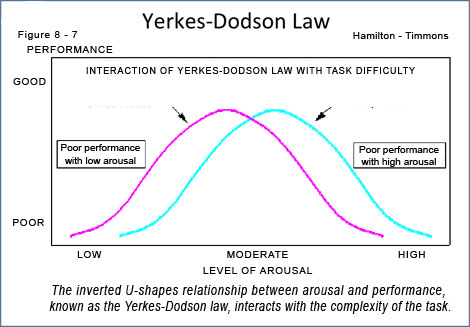Volume 3, Issue 17
Effectiveness peaks in Flow state when the mind/body duality collapses and everything is One — the Zone. One of the obstacles to this condition is the predisposition that one must always be doing something.
This “Doing” hidden assumption has deep roots: the Work Ethic and industriousness virtue we were taught, the sense that while others are suffering one’s duty is to never stop searching for solutions, the inforush that has been accelerating since the cave paintings (which I call Acceleritis), the caffeine culture, the systemically out of whack mounting economic pressure, the TO-DO List that is never done, the admiration we feel for people bouncing with energy. Although the situation has been pandemic for millennia, it is so pronounced in Manhattan that New Yorkers traveling anywhere else sense everybody else as too laid back.
The first serious recorded psychology on the planet (the Vedas), which was set down some 3500 years ago, not long after the beginnings of Acceleritis, noticed this tendency as one of the three qualities of being, Rajas, the addiction to action (vs. Tamas, the addiction to rest, and Sattva, the addiction to knowing). The Vedas called these the three qualities of existence rather than using the negative term “addictions”, which is the author’s own perspective. This perspective sees anything deviating from pure observation, as a motivational drive, which only in the extreme literally becomes an addiction.
The good thing behind the Doing state of mind, beside often good intentions, is that there is a wellspring of creativity bursting to be channeled outward into something. One might be extremely grateful finding this creative drive inside. The point of this post is that the channeling of this drive is a science and an art to study and, yes, at certain times, control.
Being able to hold back the impulse to Doing confers the Observer state. The Observer state is the access portico into the Flow state, and it is easier to willfully switch into Observer state than it is to flip oneself by act of will into Flow state directly. Catching oneself assuming that one ought to be doing something, and arresting that assumption, is one of the easiest ways to get into the Observer state. Here is an exercise. More on this in our next post.
Best to all,
Bill
PS — New York tri-state area theater lovers, if you can, go see “The Outgoing Tide” at Ellenville NY’s Shadowland Theater. One of the most moving experiences on or off Broadway. Ends run in just a few days, June 16.
Follow my regular blog contribution at Jack Myers Media Network: In Terms of ROI. It is in the free section of the website at Bill Harvey at MediaBizBloggers.com.

